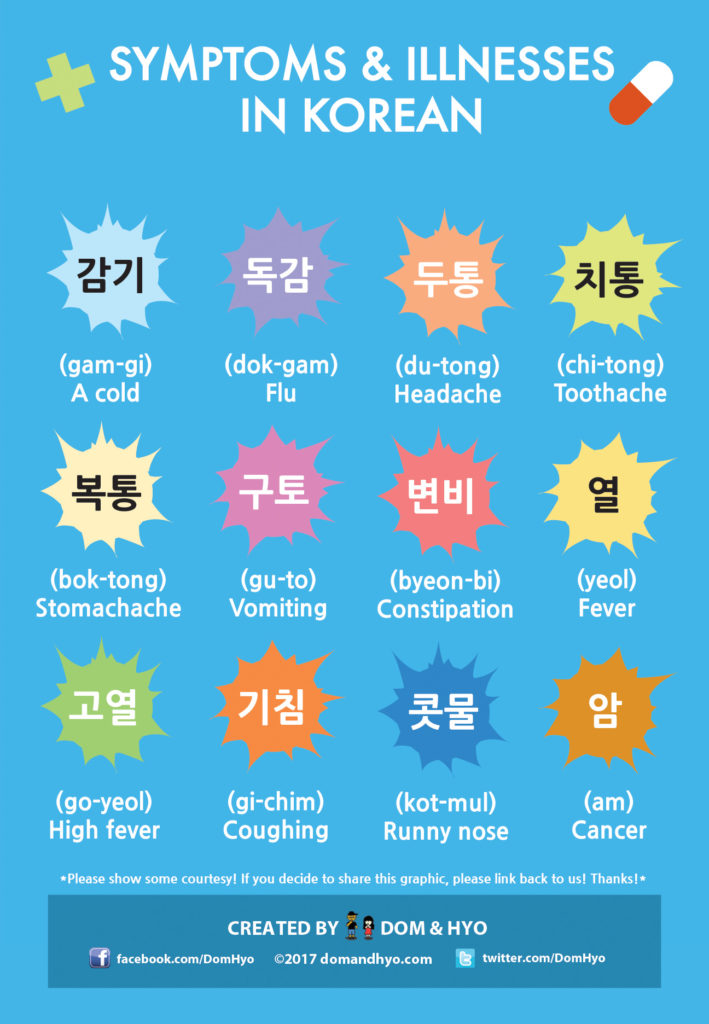
This will be part one of a series on sicknesses, symptoms, and medical words in Korean. Knowing these can be very helpful if you need to go to the hospital in Korea. These are also just good to know in general.
If you are ever in the hospital, here are some common Korean phrases you can use to describe the symptoms you have.
For example…
I have a headache (two ways):
머리가 아파요 (meo-ri-ga a-pa-yo)/ 두통이 있어요 (du-teong-i i-sseo-yo)
I have a sore throat:
목이 아파요 (mok-i a-pa-yo)
I have a stomachache:
배가 아파요 (bae-ga a-pa-yo)
I have a cold:
감기 걸렸어요 (gam-gi-eh geol-lyeoss-eo-yo)
I have the flu:
독감 걸렸어요 (dok-gam geol-lyeo-sseo-yo)
I have a fever:
열이 있어요. (yeol-i i-sseo-yo)
I have a stuffy nose:
코가막혔어요. (ko-gha mak-hyeoss-eo-yo)
I have a runny nose:
자꾸 콧물이 나요 (ja-ggu kon-mul-ee na-yo)
If you want to study even more and improve your Korean, check out our ebooks over at the Dom & Hyo Store.
Korean vocabulary in this graphic:
감기 (gam-gi) = A cold
독감 (dok-gam) = Flu
두통 (du-tong) = Headache
치통 (chi-tong) = Toothache
복통 (bok-tong) = Stomachache
구토 (gu-to) = Vomiting
변비 (byeon-bi) = Constipation
열 (yeol) = Fever
고열 (go-yeol) = High fever
기침 (gi-chim) = Cough
콧물 (kot-mul) = Runny nose
암 (am) = Cancer
